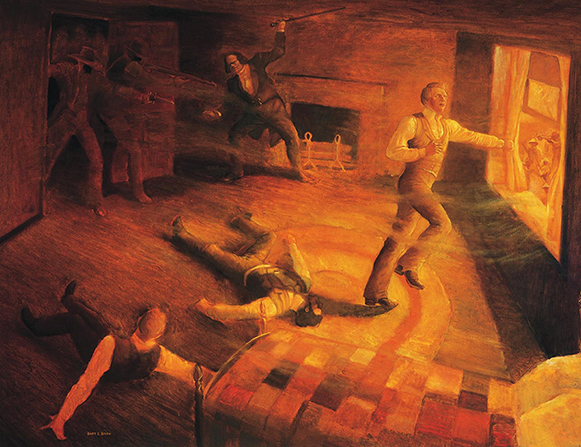In the midst of a library's computer lab, there was a young man,
diligently working on a story that was to be published in a non-profit
magazine in the coming weeks. In this computer lab, there walks in a
short, little woman-- thick glasses, a hanging lower lip, and a problem
with her attitude. She plops right down on a computer and plugs in her headphone, not minding what others around her have to say. The unwanted voices of Justin Bieber and a variety of other pop singers are heard through the headphones, radiating a maxed-out volume that reverberates around the computer lab. The cacophony of a squealing water bottle is heard every several minutes, piercing its sound to those nearby. Day by day, this habit continues and many are afraid of telling this disabled woman that she's being a distraction.
One day, as the persistence of the music and peculiar habits get the best of this young author, he approaches this woman, all 5-foot 2 of her, and firmly tells her that she is being a distraction to those around her. With an un-understood look in her face, she turns her attention away from the man and continues forth with her habit, undeterred and non-compliant. A look of puzzlement and frustration in the young man's face, he goes toward the information desk of the library to voice his complaint. The librarian listens intently to what the man has told her and she goes forth and in a loving but authoritative charge, she sends this woman out of the computer lab, never able to come back again. Many in the computer lab look to this man with a sign of relief and thankfulness as they all continue to do what they have been doing-- in peace, finally.
As the days approached, there, the short, little woman is seen again but with two tall men, a business-dressed woman, and an official-looking envelope. The business-dressed woman, who addressed herself as a "Nancy," a representative from the local disabilities advocacy group and she told this young man that the envelope the short, little woman was holding was a subpoena-- that they had filed a lawsuit against the young man and also the library for kicking out the woman-- who turns out to have down syndrome. The two parties were to owe this woman $3.2 million dollars in lawsuit and reparation each.
The young man had nothing like this happen to him in his life before. He was at a loss of what to do. He didn't and couldn't raise enough money to pay for the lawsuit, let alone hiring an attorney. The library wasn't going to do much to help his case, either. Devastated, he returned home, looking poorly in the prospects of his future.
As the court date was approaching closer and closer, the advocacy group had broadcasted the incident on a national scale, making it known to mainstream media and other public figures and groups.
"Man responsible for kicking out handicapped patron out of library"
"Inhumane act of atrocity took place in computer lab"
"Woman with down syndrome abused for being mentally challenged"
"Insensitive bigot claims superiority over the disabled"
"Hate crime? We think so!"
Such headlines had become such a ubiquitous sight that many had seen and vilified this young man as he walked the streets, entered various establishments, and even published his articles. Words of anger and retribution lashed the back of this man wherever he was, and was not given a day of mercy to rest from what he had done. Abuse, robbery, and shame had followed him like a shadow, wherever he was to be seen. His magazine organization had fired him because of his image. He was evicted from his apartment because of his inability to pay rent. He couldn't get another job because his name was so notorious among the public opinion.
The court date was coming in a few weeks. This man, homeless and without support, now wandered the streets of the city slums, living off of the blind charity of the church soup kitchens. With what little money he could muster up, the young man had gone to a local pawn shop and put in all that he had to purchase a cold, long barrel-- trigger attached. He had put in another couple of dollars to buy five red, cylindrical tubes, brass for its base.
In a location far from the incivility and vile mouths of man, he faced a brick wall-- a racing river right behind him, running from an impending storm-- and uttered a last, desperate prayer. He picks up the cold steel of the metal-and-wood salvation and inserts the red cylinder in a hole at its side. With a quiet-as-possible click, the cylinder goes deeper into the barrel. The shiny, barren emptiness is pointed into the young man's mouth. As he closes his eyes and voices a final good-bye, he swallows the red pill-- never again to see the remnants of his mind and his soul again. He was set free from the world, its torment now at ease.
"Man's guilt gets the best of him"
"An unsung death of a cruel and vicious man"
"Good riddance"

